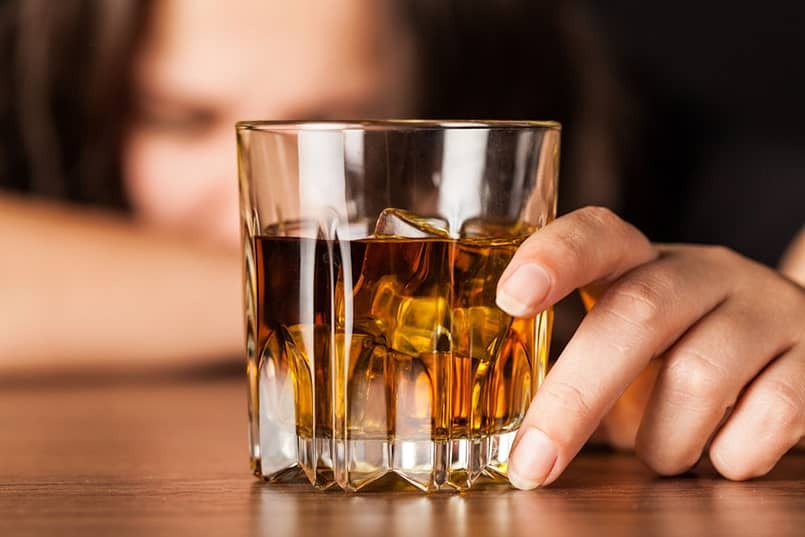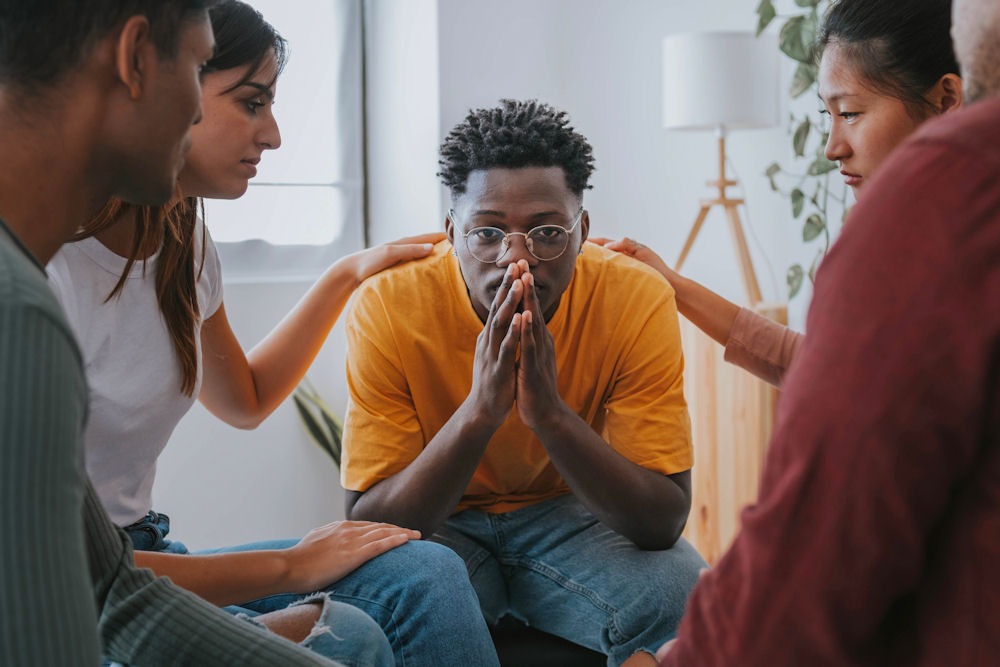Have you ever woken up after a night of drinking with more than just a pounding headache and queasy stomach? If you’ve felt unexplainable feelings of anxiety or dread, you might have been experiencing a phenomenon known as ‘hangxiety.’
But what exactly is hangxiety, and why does it strike with such force the morning after an evening of drinking? In this blog, we’ll explore hangxiety along with its symptoms, causes, duration, and potential cures—providing clarity for those who run into these post-drinking jitters.
At Wisconsin Recovery Institute, we understand that hangxiety can be a real struggle for some individuals. At our Wisconsin addiction treatment center, we want to help you learn more about the relationship between anxiety and hangovers so that you can take the necessary steps to overcome it.
What is Anxiety?
Anxiety is a natural response to stress, characterized by feelings of fear or apprehension about what’s to come. For instance, feeling anxious before a job interview or a significant exam is a normal sensation. However, when these feelings become pervasive, overwhelming, and interfere with daily life, they may signify an anxiety disorder.
These disorders are among the most common mental health issues and can manifest in various forms, such as generalized anxiety disorder (GAD), panic disorder, and social anxiety disorder.
Symptoms of anxiety often include excessive worry, restlessness, difficulty concentrating, and physical manifestations such as increased heart rate, sweating, and trembling. Understanding anxiety is crucial in recognizing hangxiety, as the latter taps into these existing frameworks of fear and worry, amplifying them under the influence of alcohol and its aftermath.
What is Hangxiety?

These symptoms can vary in severity and may be influenced by the amount of alcohol consumed, personal mental health history, and individual physiological responses to alcohol. Essentially, hangxiety shines a light on the intricate ways that alcohol consumption can affect not just the body, but the mind as well, leading to an acute sense of anxiety during the hangover phase.
At first blush, the term ‘hangxiety’ seems tailor-made for an Urban Dictionary entry, describing the acute sensation of anxiety experienced during a hangover. However, this anxiety isn’t just an uncomfortable byproduct of excessive drinking; it’s a genuine psychological state that plagues many individuals after a night of drinking.
The Symptoms of Hangxiety
Defined as the pronounced sense of unease or nervousness compounded with typical hangover symptoms, hangxiety is often characterized by intrusive thoughts, rapid heartbeat, restlessness, and an overall sense of impending doom. Other symptoms of hangxiety include the following:
- Feeling overly worried or paranoid about actions taken while drinking
- Sensation of a rapid or irregular heartbeat
- Difficulty in concentrating or making decisions
- Experiencing sweating or chills unrelated to physical exertion
- Sudden mood swings or increased irritability
- Difficulty sleeping or disturbances in sleep patterns
- Unexplained feelings of guilt or shame
- Avoidance of social interaction or communication with others
These symptoms may vary in intensity and can persist for hours or even days after a drinking session. They are also closely related to the physical discomforts of hangovers, such as dehydration, low blood sugar, and disrupted sleep patterns.
Does Everyone Experience Hangxiety the Same Way?
Hangxiety isn’t a one-size-fits-all experience. Just as each individual’s drinking habits differ, so too can the severity and specific symptoms of their hangxiety.
While some may only experience a mild hint of anxiety, others might be subjected to a full-blown panic attack. The common thread that weaves through these experiences is a sense of psychological discord that compounds the already unpleasant physical aftereffects of drinking.
Symptoms can vary significantly from person to person and from episode to episode. One’s overall physical and mental health, as well as the amount and type of alcohol consumed, can dictate the nature of their hangxiety.
The Causes of Hangxiety
Understanding what causes hangxiety is essential in both addressing and avoiding its disruptive presence in one’s life. There are several potential factors that can contribute to hangxiety, including:
Alcohol affects the brain’s neurotransmitters such as serotonin and dopamine, which play a crucial role in regulating mood and anxiety. Heavy drinking can cause imbalances in these neurotransmitters, leading to increased anxiety the next day.
Alcohol is a depressant, meaning it suppresses excitatory brain functions. This creates an imbalance that may linger well into the next day. These disruptions can lead to both the physical distress of a hangover and the psychological turmoil of anxiety.
Alcohol consumption can also disrupt sleep patterns, leading to poor quality of sleep and even insomnia. This is caused by the way alcohol affects the body’s production of melatonin, a hormone responsible for regulating sleep-wake cycles.
When our sleep is disrupted, it can have a significant impact on our mental and emotional well-being, exacerbating anxiety symptoms. This lack of restorative sleep can exacerbate feelings of anxiety the next day.
Alcohol is a depressant that slows down brain activity. Therefore, when one stops drinking after a night out, the body goes through withdrawal as it tries to adjust to the sudden absence of alcohol. This can lead to increased feelings of anxiety and agitation.
The severity of alcohol withdrawal symptoms can vary, depending on factors such as the amount and duration of alcohol consumption. In extreme cases, individuals may experience severe anxiety, hallucinations, and even seizures.
Individuals with pre-existing anxiety disorders may be more sensitive to the effects of alcohol on their mental state. Alcohol can act as a trigger for underlying anxiety, leading to heightened symptoms the next day.
Additionally, excessive drinking can also worsen existing mental health conditions and may even lead to the development of new ones or a co-occurring substance use disorder. When a mental health disorder and addiction are present, this is referred to as a dual diagnosis. Dual diagnosis requires specialized treatment to address both conditions simultaneously.
How Long does Hangxiety Last?
Hangxiety’s duration depends on several factors, including the severity of one’s hangover and individual physiological responses. In most cases, symptoms will gradually dissipate as the body processes and eliminates alcohol from the system. This can take anywhere from a few hours to several days.
For some, hangover anxiety may be fleeting, dissipating quickly as the body processes the residual alcohol. Others, particularly chronic heavy drinkers or those with anxiety disorders, may find the unease lingers long past the typical hangover timeline. The following factors may influence how long your hangxiety lasts:
- Age
- Body weight and composition
- Overall health
- Amount and type of alcohol consumed
- Existing mental health conditions
- Frequency and duration of drinking episodes
To reduce the impact of hangxiety, individuals can follow essential self-care practices, such as staying hydrated, eating well-balanced meals, and getting enough rest. Additionally, seeking professional help from a therapist or participating in support groups can also be beneficial.
How to Manage Hangxiety
Fortunately, there are ways to alleviate the symptoms of hangxiety and prevent future episodes. Some strategies for coping with hangxiety include:
- Staying hydrated before, during, and after drinking alcohol
- Avoiding excessive alcohol consumption or binge drinking
- Eating a balanced meal before and during alcohol consumption to help slow down the absorption of alcohol
- Getting enough rest and practicing good sleep habits
- Seeking professional help for underlying mental health issues or addiction
It’s essential to remember that hangxiety is a temporary experience that will pass. By taking care of yourself and seeking support when needed, you can minimize the impact of hangxiety on your life.
Is there a cure for Hangxiety?
Overall, there is no cure for hangxiety. Hangovers require time for the body to process and eliminate alcohol, and hangxiety can take a similar path. However, by addressing underlying factors such as mental health issues or excessive drinking habits, individuals may be able to reduce the frequency and severity of their hangxiety episodes.
While there are many ways to mitigate the effects of hangxiety, this condition can be avoided entirely by practicing responsible drinking habits. Moderation, self-care, and seeking professional help when needed are key steps in preventing hangxiety and promoting overall well-being.
Treatment for Alcohol Abuse

Here, we offer a beacon of hope for individuals looking to free themselves from the throes of alcohol addiction. Through detox, residential treatment, and specialized dual diagnosis programs, our dedicated team crafts individualized paths to sustainable sobriety.
Recovering from Alcohol Abuse with Wisconsin Recovery Institute
The road to recovery can be fraught with challenges, but the reward of overcoming hangxiety and reclaiming one’s life from alcohol’s shadow is immeasurable. At the Wisconsin Recovery Institute, the path to recovery is navigated with compassion, expertise, and a commitment to each individual’s unique healing journey.
If you or a loved one is struggling with alcohol abuse and hangxiety, please reach out today. Our team is here to support you every step of the way towards a life free from anxiety and addiction.

